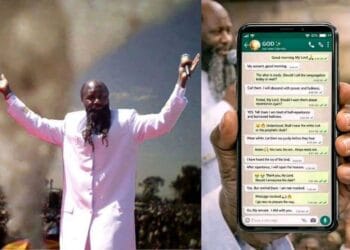With the newly sworn-in Independent Electoral and Boundaries Commission (IEBC), led by Chairperson Erastus Edung Ethekon, Kenyans are reigniting calls to recall MPs in Kenya, leveraging the constitutional right to hold underperforming lawmakers accountable.
The IEBC swearing-in 2025 has spurred public interest in the MP recall process in Kenya, especially after the Saba Saba protests 2025 highlighted dissatisfaction with MPs like Kimani Ichung’wah and Esther Passaris for supporting controversial bills.
Step-by-step guide to recall MPs
Below is a step-by-step guide to recall MPs, outlining the Kenya MP recall procedure as per the Constitution of Kenya 2010 and the Elections Act 2011.
Step 1: File a Recall Petition with the IEBC.
The process to recall an MP in Kenya begins with a registered voter from the constituency preparing a written petition and submitting it to the IEBC.
The petition must clearly state the grounds for MP recall, which, under Section 45 of the Elections Act, include:
- Violation of Chapter Six of the Constitution (integrity and leadership standards).
- Mismanagement of public resources, confirmed by a legal process.
- Conviction for electoral offenses under the Elections Act.
- Gross misconduct bringing disrepute to the office.
The petition must be accompanied by a High Court judgment verifying these grounds, as stipulated by a 2017 ruling that struck down restrictive provisions.
A fee, currently Ksh30,000, equivalent to an election petition, is required. This step ensures only valid grievances proceed, addressing concerns like MP accountability Kenya.
Step 2: Collect Signatures from Registered Voters.
The petitioner must gather signatures from at least 30% of registered voters in the constituency, with at least 15% from more than half the wards to reflect diversity, as outlined in the Elections Act.
For example, a constituency with 100,000 voters requires 30,000 signatures. The signature collection for recall must be completed within 30 days of filing the petition.
This requirement, criticized by the Law Society of Kenya for being cumbersome, aims to balance voter rights with preventing frivolous recalls. The IEBC voter verification process ensures signatures are legitimate, addressing Kenya electoral integrity concerns.
Step 3: IEBC Verification and Recall Vote.
Within 30 days of receiving the petition, the IEBC verifies the signatures and petition validity. If approved, the commission notifies the Speaker of the National Assembly within 15 days, triggering preparations for a recall election in Kenya.
The IEBC must conduct the recall vote within 90 days, framing a simple “yes” or “no” question: “Do you wish to recall your MP?” A simple majority of voters participating determines the outcome, provided at least 50% of registered voters participate.
This step shows the IEBC role in MP recall, critical for ensuring fair recall elections.
Step 4: By-Election if Recall Succeeds.
If the recall vote passes, the IEBC organizes a by-election to elect a new MP, conducted like a general election. Notably, the recalled MP is eligible to run in the by-election, a provision debated for potentially undermining the process.
This stage completes the Kenya MP recall process, aiming to restore electoral accountability Kenya. The 2027 Kenya elections context amplifies the urgency, as citizens seek to address underperforming MPs Kenya before the next general vote.
Challenges in Recalling MPs.
The challenges in recalling MPs in Kenya include stringent signature requirements, the need for a High Court ruling, and timing constraints—recalls are only permitted 24 months after an election and 12 months before the next, meaning August 2024 to August 2026 for the current term.
The IEBC reconstitution 2025, with commissioners like Ann Nderitu and Fahima Abdallah, resolves previous quorum issues, but logistical hurdles remain.
Public frustration, evident in citizens calling for MP recall highlights the need for clearer legislation, as proposed by the Senate recall policy 2025.
Why This Matters
The right to recall MPs in Kenya, enshrined in Article 104, empowers voters to address MP misconduct in Kenya and ensure representation aligns with public interests.
With the new IEBC leadership 2025, citizens have a renewed opportunity to tackle Kenya political accountability issues, especially amid tensions over bills like the Finance Bill 2024.
As the National Council of Churches of Kenya urges signature collection, the process remains a vital tool for Kenya voter empowerment, despite its complexity.
















